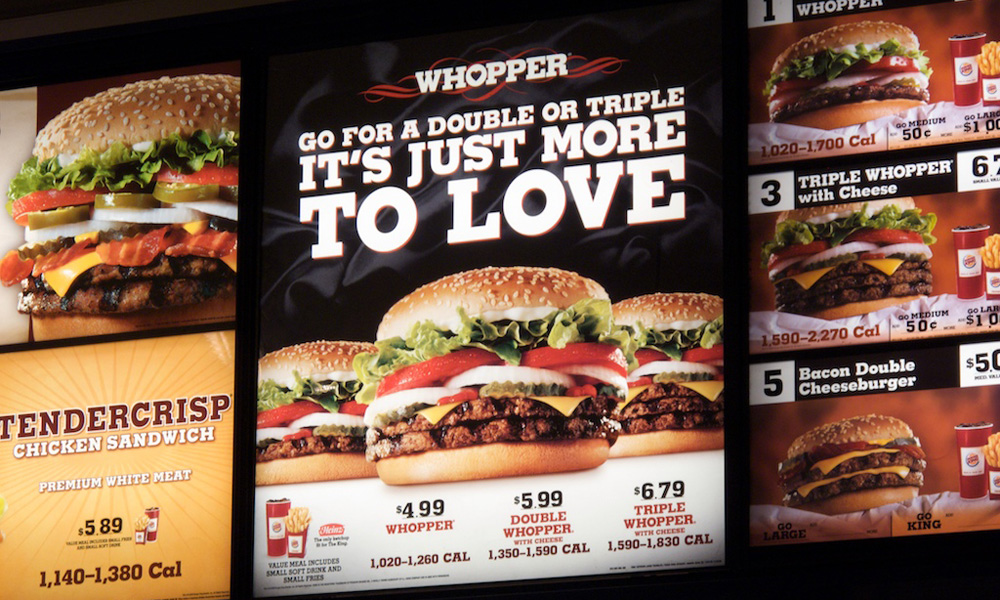
Food Marketers Raise Concern Over Calorie Regulations
A section of the Affordable Care Act requires food companies to list calorie counts on menus or food marketing, but a grocery industry organization is calling foul. One consumer group, meanwhile, says the changes aren't as difficult to implement as suggested.
The signs, they are a-changin’. But that doesn’t mean everyone is happy about it.
The Food Marketing Institute (FMI), an association that represents supermarket retailers such as Kroger Co., is among the loudest voices speaking out against a section of the Affordable Care Act requiring businesses to provide visible calorie labeling for consumers. FMI says it could prove particularly troublesome for grocers, which carry a wide variety of foods.
However, consumer advocates aren’t so convinced the requirement is as burdensome as industry groups say it is.
More details:
The mandate: One of the lesser-known sections of the Affordable Care Act includes rules, added without debate in Congress, that require restaurants and other food outlets to put calorie counts on menus, vending machines, and other forms of food marketing to consumers. (The rules also require businesses to offer written information to consumers regarding other nutritional information.) There are some exceptions, however. Alcoholic beverages are not covered.
The negative reaction: FMI’s Erik Lieberman suggests that the rules could have significant repurcussions on grocery stores, which carry so many items that it would require a massive reworking of many stores’ marketing. “The cost to the grocery industry would be $1 billion in the first year,” he told Bloomberg. Pizza chains and convenience stores are also upset about the rules, which would force them to update menus significantly. These industries in particular are pushing Congress for legislation that would apply the rules only to establishments where more than half of the business comes from food prepared onsite and most customers are walk-in, not delivery. Other information would be offered online.
The dissenting voice: Not everyone is convinced that the rules are so onerous. The Center for Science in the Public Interest, a consumer-advocacy group that has pushed for such changes to food labels, notes that supermarkets and convenience stores are quickly becoming more like restaurants, so they should be covered. “The supermarket industry is positioning itself as a place to buy prepared items so you don’t have to go out to eat or cook,” the center’s Margo Wootan told the Associated Press.
What regulators say: It appears that the Food and Drug Administration largely agrees with retailers that the rules could be problematic and has delayed implementation for now. “Implementation raises complex issues that FDA is working to address in a practical way that achieves the congressional objective of providing information consumers can use to choose healthy diets,” Michael Taylor, the agency’s deputy commissioner for foods, told Bloomberg. FDA Commissioner Margaret Hamburg told the AP in March that the idea of listing calorie counts is good on paper, but “in practice it really would be very hard” for some businesses.
The regulations, if enacted in their current form, may undermine one state law on the same issue. In March, the state of Mississippi passed a so-called “anti-Bloomberg law,” which prevents cities and counties from implementing food and drink regulations such as requiring restaurants to list calorie counts on menus.
Restaurants in some regions of the country are already required to list calorie counts. (photo by King Chung Huang/Flickr)






Comments